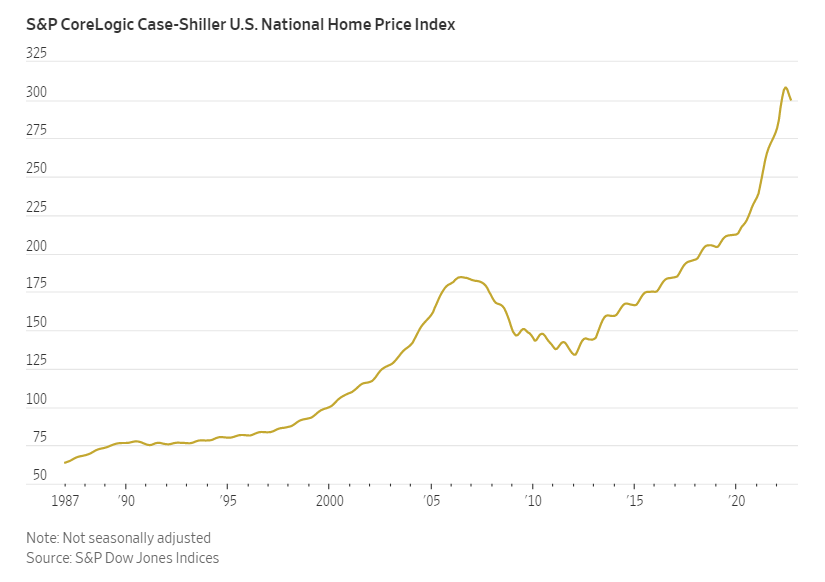-
Posts
1,852 -
Joined
-
Days Won
14
Content Type
Profiles
Forums
Events
Everything posted by UK
-
John, thanks for your comment. Yes, looking one or two years out, as soon as new Himars, F35s and other stuff will arrive (which will be very plenty) and Sweden with Finland join NATO (foregone conclusion) I am too starting to become optimistic on the ability of the region to stand on its own, even against Russia. https://www.bloomberg.com/news/features/2022-12-18/ukraine-conflict-brings-finland-s-troops-and-tanks-in-from-the-cold-war https://www.defensenews.com/pentagon/2022/12/16/lithuania-signs-495-million-deal-to-buy-himars-atacms/ https://www.bloomberg.com/news/articles/2022-08-30/poland-will-double-military-spending-as-war-in-ukraine-rages?leadSource=uverify wall https://www.reuters.com/world/europe/poland-expected-buy-skorean-rocket-launchers-after-tank-howitzer-sales-2022-10-19/
-
https://www.bloomberg.com/news/articles/2022-12-18/europe-s-1-trillion-energy-bill-only-marks-start-of-the-crisis?srnd=premium-europe Europe got hit by roughly $1 trillion from surging energy costs in the fallout of Russia’s war in Ukraine, and the deepest crisis in decades is only getting started. After this winter, the region will have to refill gas reserves with little to no deliveries from Russia, intensifying competition for tankers of the fuel. Even with more facilities to import liquefied natural gas coming online, the market is expected to remain tight until 2026, when additional production capacity from the US to Qatar becomes available. That means no respite from high prices. While governments were able to help companies and consumers absorb much of the blow with more than $700 billion in aid, according to the Brussels-based think tank Bruegel, a state of emergency could last for years. With interest rates rising and economies likely already in recession, the support that cushioned the blow for millions of households and businesses is looking increasingly unaffordable. “Once you add everything up — bailouts, subsidies — it is a ridiculously large amount of money,” said Martin Devenish, a director at consultancy S-RM. “It’s going to be a lot harder for governments to manage this crisis next year.”
-
https://www.bloomberg.com/news/articles/2022-12-19/san-francisco-s-feeling-the-pain-of-big-tech-s-troubles-remote-work?srnd=premium-europe Covid changed all that, as many of the young workers who fueled the city's surging wealth decamped to cheaper places such as Lake Tahoe or Austin, Texas, during lockdowns. From July 2020 to July 2021, San Francisco lost the most residents by share among major US cities. And even as vaccines brought some return to normalcy, tech companies, competing for in-demand workers, had little inclination to force reluctant employees back to offices. Earlier this year, when Karen Chapple led a group of researchers examining major economic hubs, she was surprised to see that San Francisco was seemingly “frozen in time.” Its downtown activity had recovered the least of 31 large US and Canadian cities. “San Francisco really suffered from kind of doubling down on commercial office towers,” said Chapple, a regional planning academic at UC Berkeley and the University of Toronto. “They made a big bet and it failed.” “As people leave, as firms leave, that’ll ease up some of these price pressures and that will in turn check some of this out-migration that we’ve been seeing,” Ratz said, noting that the latest figures showed inflation less heated in San Francisco than elsewhere. But a new paradigm for San Francisco will take years to take effect, if it does at all. And as time goes by, the problem may less be people moving out, but fewer moving in. Liz Giorgi thought she had to move to San Francisco to launch Soona, a virtual photoshoot platform for brands. But she was able to raise about $51 million while in Colorado, and it struck her: Nobody was telling her she needed to relocate. In fact, she said, investors begged her to organize board meetings in Vail, the Rocky Mountain resort town. San Francisco “didn’t seem as powerful or as attractive to me,” Giorgi said.
-
https://www.bloomberg.com/news/articles/2022-12-18/fed-zooms-in-on-american-paychecks-as-it-takes-inflation-battle-into-2023 As for the non-housing services that Powell has been highlighting, Omair Sharif — the founder of Inflation Insights LLC — sees plenty of evidence that wage growth hasn’t been the primary driver of inflation there. Prices in that category were mainly driven by increases in transportation and medical care in the first half of the year, which have now reversed, he says. There were a variety of causes, from a sudden surge in the demand for travel to quirks in how health insurance costs are calculated. Wages weren’t a big part of the story, Sharif says. “It’s just ingrained in everybody’s minds somehow that this is how things work.”
-
https://ca.movies.yahoo.com/ukraine-war-russia-enlists-singers-080018966.html
-
https://www.wsj.com/articles/why-this-housing-downturn-isnt-like-the-last-one-11671273004?mod=hp_lead_pos1
-
Interesting story and you can not say that the guy was not at least somewhat sensible: Another explanation for Murphy's lackluster results is that he's a market timer, constantly shifting from stocks to cash in hopes of exploiting seasonal patterns he believes he's spotted. In April, after the Nasdaq crashed, Murphy told investors to get fully invested, theorizing that the battered market would skip the traditional summer slump in tech stocks. In July he reversed course, telling subscribers he was selling all his stocks to avoid an imminent 25% drop in the Nasdaq. Didn't happen. Murphy's about-face prompted a wave of angry calls and e-mail from subscribers. "Customer service," he recalls, "came to me and said, 'Can you put something on the hotline about what a moron you are? Because a lot of people are calling and saying you're a moron.'" Murphy says he's considering halting the practice of giving his subscribers market-timing advice.
-
At this point BRK is also my only solution re energy/oil/utilities/etc too.
-
I think it was in 2011 and I already new at that time about WB and co quite well, but Berkowitz and his thesis was also part of the reason I finally decided to invest in BAC and other US large banks in the end of that year. Those were a very good investments for me and I was very thankful for him, for educating me and everyone else on the attractiveness of big banks at that time in very plain language. (I miss this with JOE:)). And you would not believe how many mistakes I made with banks before, mainly by wrongly focusing on European banks:). So Berkowitz is my hero for this episode:)
-
https://www.bloomberg.com/news/articles/2022-12-16/binance-faces-too-big-to-fail-worry-as-ftx-collapse-boosts-dominance?srnd=premium-europe Even for those who ostensibly support CZ and his exchange, Binance’s market supremacy in the wake of FTX’s collapse doesn’t sit well in an industry that preaches decentralization. Weakness in crypto prices that followed headlines about CZ’s company this week reinforce concern that Binance has become a “too big to fail” player in a market where, unlike traditional finance, there’s no one to stop a potential failure, offer a bailout or soothe any contagion. “I don’t think Binance is trying to cause problems, but that organization is now a risk to all of us,” said Mark Lurie, the chief executive officer and co-founder of Shipyard Software, a developer of decentralized exchanges. “Anytime you have one player controlling substantial amount of volume, there’s a lot of systematic risks.” As Bankman-Fried’s FTX empire collapsed into bankruptcy and the 30-year-old former billionaire swapped a luxury penthouse for a Bahamas jail cell, Binance has increased its market share to 52.9%, its largest ever, and grown its share of derivatives trading to 67.2%, according to CryptoCompare. Binance’s dominance came up in a Senate committee hearing on FTX on Wednesday, with Tennessee Senator Bill Hagerty saying a hypothetical similar implosion by CZ’s exchange would prove “catastrophic for the cryptocurrency industry, and it would prove catastrophic to all of the consumers that utilize the industry.”
-
https://www.bloomberg.com/news/articles/2022-12-16/china-s-care-homes-rush-to-protect-elderly-from-covid-surge The same hunkering down is taking place across China, as its under-vaccinated elderly suddenly find themselves surrounded by infection after three years of little threat. In cities including Beijing, Shanghai and Nanjing, local governments are enforcing on care homes the same closed-loop system that factories adopted during earlier outbreaks. No one comes, and no one goes. Time is running out. Evidence from around the world shows that facilities for seniors often see the biggest waves of deaths, which is why countries prioritized vaccinating care home occupants first. That’s not been the case in China, where 38,000 homes provide beds for 8.2 million seniors according to 2020 data. Only 42% of those aged over 80 have had booster shots. That’s well below the levels seen in other countries that reopened after abandoning strict approaches toward the virus. “It’s just the start of a real tough time,” read a statement from Pudong Shinan Nursing Home in Shanghai explaining its new rules this week. “When the experts say 80-90% of the population will eventually get infected, we are scared!” National Health Commission officials last week gave rudimentary advice to care homes facing potential outbreaks of Covid. Minimize the risk of infection by improving ventilation, practicing hand hygiene, wearing masks and avoiding gatherings. They also urged the elderly to get vaccinated, without making shots mandatory. Persuading the elderly has proven to be a tough task. Many older Chinese are reluctant to get vaccinated, said Feng Wang, a sociology professor at the University of California, Irvine. Forcing them to get vaccinated risks creating a backlash in a society that traditionally has emphasized respecting seniors, he said. “It’s a tremendous gamble,” said Wang. “If an elderly person resists, I’m pretty sure there will be a lot of reluctance among the nurses, the local neighborhood committees and officials to force elderly people to take the vaccine.”
-
https://www.bloomberg.com/news/articles/2022-12-16/covid-unleashed-in-beijing-shows-rest-of-china-what-comes-next Beijing’s rapidly spreading Covid outbreak has turned the Chinese capital of 22 million people into a virtual ghost town as stores close and restaurants empty, underscoring the cost of President Xi Jinping’s sudden pivot away from Covid Zero. Bucking expectations for a managed and gradual transition, Xi’s government is now allowing the virus to run rampant. While officials have abandoned efforts to track case numbers, anecdotal evidence suggests entire families and offices in Beijing have become infected in the span of just days — a potential harbinger of worse things to come in other parts of China with less-developed health care systems. Beijing residents are hunkering down at home, either because they’re scared of catching the virus or because they already have it. While many grocery stores are still open to provide essentials, delivery services for food and other goods are facing delays with workers out sick. The retrenchment suggests China’s economy is likely to get worse before the benefits of exiting Covid Zero start to kick in next year. “My whole office is positive and down,” said one Beijing resident, a project manager named Emile, who asked not to identified by his full name. “It seems everyone in the city has a fever or headache. Beijing looks like a ghost town.” Infected or not, the abrupt change of policies has caught the country by surprise and many are frustrated after years of being told by China’s state media that Covid had to be stamped out by whatever means necessary. With the pathogen running rampant, the Communist Party is still insisting that Xi’s strategy will “stand the test of history” even as the president himself remains silent on the dramatic shift.
-
Copper was mentioned in the discussion but it relates to other types of commodities and their ability to store value over long term as well. In a sense, that using them as a store of value you aren't you also making some bet against human ingenuity? Basically you own something that a. does not produce any interest, rent or fcf, but b. at the same time still carries some risk of being disrupted (produced cheaper etc). This is more philosophical / long term idea, not some forecast on any particular commodity price, but isn't it right? Now, well run businesses, involved in producing commodities, especial if they do this by being cost efficient or adding value another way, is completely different and much better bet in my opinion. For another, maybe somewhat crazy, example consider results of tobacco vs tobacco companies over history:)? https://www.bloomberg.com/news/articles/2022-11-27/this-startup-may-have-the-key-to-unlock-millions-of-tons-of-copper In what could prove a game changer for global supply, a US startup says it’s solved a puzzle that has frustrated the mining world for decades. If successful, the discovery by Jetti Resources could unlock millions of tons of new copper to feed power grids, building sites and car fleets around the globe, narrowing and possibly even closing the deficit. At its simplest, Jetti’s technology is focused on a common type of ore that traps copper behind a thin film, making it too costly and difficult to extract. The result is that vast quantities of metal have been left stranded over the decades in mine-waste piles on the surface, as well as in untapped deposits. To crack the code, Jetti has developed a specialized catalyst to disrupt the layer, allowing rock-eating microbes to go to work at releasing the trapped copper.The technology still needs to be proven on a large scale. But the riches at stake are pulling in some of the industry’s most powerful players.BHP Group, the biggest mining company, is already an investor and has now spent months negotiating for a trial plant at its crown jewel copper mine, Escondida in Chile, according to people familiar with the matter. US miner Freeport-McMoRan Inc. began implementing Jetti’s technology at an Arizona mine this year, while rival Rio Tinto Group is planning to roll out a competing but similar process.
-
Very interesting, thanks!
-
Thanks for you answer!
-
Not sure how will play it but so far: "Anecdotal real-time data point to sharp drops in the use of roads and public transport as fear of the virus constrains activity in much the same way as official lockdowns. The development is a fresh blow to an economy that needs consumer demand to mitigate the chilling effect of a chronic real-estate crisis. It suggests that consumer-facing indicators, such as retail sales, are likely to fall further before herd immunity can kick in."
-
https://www.bloomberg.com/news/articles/2022-12-15/us-blacklists-more-china-tech-companies-escalating-trade-fight?srnd=premium-europe There were some positive developments recently, especially on geopolitical rethorics from ccp and then this 180 turn around on covid (not sure how it will end thougt), but it seems that US just escallates more and more. And Chinas RE situation and economy is not getting better at all. Also re shareholder returns, audit solution is great, but what is interesting, that there are no major positive changes on big tech: didi, tencents games, ant ipo anything? So far seems no change on attitude in big tech from ccp? Found this / on big tech: https://www.wsj.com/articles/chinas-leaders-plot-pivot-back-toward-boosting-economy-11671103324?mod=hp_lead_pos7 Separately, government officials in recent weeks have begun re-examining policies for the technology and education sectors—two of the hardest-hit targets of recent regulatory campaigns—and are preparing to wrap up long-running investigations against internet companies. One such move would allow ride-hailing company Didi Global Inc.’s mobile apps to be restored to domestic app stores, according to people familiar with the issue.
-
No no, it is not me:), just funny illustration of impact to portfolio after FEDs hawkish talk:)
-
-
https://www.economist.com/zaluzhny-transcript TE: Are your allies holding you back in any way from advancing on Crimea? VZ: I can’t answer the question of whether they are holding back or not. I will simply state the facts. In order to reach the borders of Crimea, as of today we need to cover a distance of 84km to Melitopol. By the way, this is enough for us, because Melitopol would give us a full fire control of the land corridor, because from Melitopol we can already fire at the Crimean Isthmus, with the very same himars and so on. Why am I saying this to you? Because it goes back to my earlier point about resources. I can calculate, based on the task at hand, what kind of resource is needed to build combat capability. We are talking about the scale of World War One…that is what Antony Radakin [Britain’s top soldier] told me. When I told him that the British Army fired a million shells in World War One, I was told, “We will lose Europe. We will have nothing to live on if you fire that many shells.” When they say, “You get 50,000 shells”, the people who count the money faint. The biggest problem is that they really don’t have it. With this kind of resources I can’t conduct new big operations, even though we are working on one right now. It is on the way, but you don’t see it yet. We use a lot fewer shells. I know that I can beat this enemy. But I need resources. I need 300 tanks, 600-700 ifvs, 500 Howitzers. Then, I think it is completely realistic to get to the lines of February 23rd. But I can’t do it with two brigades. I get what I get, but it is less than what I need. It is not yet time to appeal to Ukrainian soldiers in the way that Mannerheim appealed to Finnish soldiers. We can and should take a lot more territory. TE: What do you make of Russia’s mobilisation? VZ: Russian mobilisation has worked. It is not true that their problems are so dire that these people will not fight. They will. A tsar tells them to go to war, and they go to war. I’ve studied the history of the two Chechen wars—it was the same. They may not be that well equipped, but they still present a problem for us. We estimate that they have a reserve of 1.2m-1.5m people… The Russians are preparing some 200,000 fresh troops. I have no doubt they will have another go at Kyiv.
-
Thanks for sharing your perspective! I do not think it is off the topic at all.
-
What would be your view in terms of probabilities, that market will test previous lows or reach substantial new lows, say 3000 or below, in the next 6-12 month?
-
I am not sure what to expect either, so my answer to this now is not to have strong opinion and to have approximately equal split between more value/short duration and more growth/long duration assets. Also re what fed has said, situation is of course somewhat different (inflation currently), but I remember very well (because I waited for more better prices and somewhat missed that opportunity), how stocks went down almost 20 per cent in the end of 2018, after fed telegraphed policy normalization and then they just changed their minds abruptly and all opportunities quickly were gone. I am no way expecting them to do the same now or in near term, but they surely can and will change their mind how much to increase and how long to hold rates higher if situation with inflation/economy/etc will be different in 6 month. But today already you can find some really good opportunities in the market I believe, especially between individual stocks. But is it a time to be very aggressive, I think it is not.
-
My understanding is that Patriot systems is needed for possible balistic missille atacks, and thee could also come from Iran in the future. RE drones, they say in a video one round / 6 bullets of this "creature" is enought to take one drone down:








